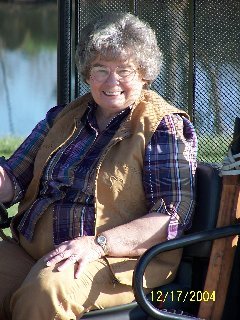After a delicious finger-food style dinner for conference registrants inside the interpretative building at the Fort Massac State Park—the oldest state park in Illinois, Gerald and I walked over to watch the peaceful movement of the barges on the Ohio River.
Gradually the round moon high above the river became brighter as the sky darkened. We moved over to the chairs in front of a plain wooden stand with only a straight chair on it. Sandy Boaz, our Illinois Chapter president of the Trail of Tears Association, asked us to let our imaginations take us back 172 years. At that time the steam boat of Cherokee Principal Chief John Ross brought him and the last detachment of the Forced Removal down that river right in front of us.
Ross’s detachment, carrying the Cherokee Constitution, had traveled up the Tennessee River to Paducah, where they went down the Ohio to Cairo. They stopped at Cairo at the confluence of the Mississippi because a letter there from Ross’s brother Lewis told him of the desperate situation of the detachments trapped between the Ohio and Mississippi Rivers because of the ice floes. Ross finally found a way up to Willards Landing and met with some of the distressed leaders in Southern Illinois.
Tony Girard gave his usual fine performance under the bright round moon as he climbed on that plain stand and became Caleb Tucker, a wagon master on the Trail of Tears. Fulfilling his boyhood dream to become a soldier, Caleb had already quit the service because of what he witnessed in Georgia when he had to help round up the Cherokee families as if they were animals leaving behind their homes and all that they had worked so hard for. He signed on as a civilian to drive one of the wagons on the Trail. By the time Caleb Tucker reached the Mississippi River, he had had all the death and misery that his heart could take. Quoting a superior officer who had previously resigned because of his conscience, Caleb concluded, “This is no job for a soldier.”
The next morning the 15th annual conference and symposium of the Trail of Tears Association was in full swing. Our Illinois board was busy registering those arriving from all over the country including 91 year old Sarah Kirk and her daughter from California.
Later I was to watch Sarah with her granddaughter Deborah on television when the TOTA took a trip to Mantle Rock and to the unveiling of markers for newly certified segments and sites both in Kentucky and Illinois. Sarah’s great grandmother and great grandfather had both perished on that Trail, and she was there in memory of them.
She was sober as she thought of their misery, but her spirit was evident when the journalist interviewing her asked her age. Without a second’s pause, she answered with a twinkle, “Nineteen.” Her granddaughter and another escort were guiding her gently with utmost respect over that rough terrain. I could not help but contrast that with the harsh conditions and lack of respect given her ancestors.
Highlights of the conference for me included hearing the current Principal Chief Chad Smith, scholars Brett H. Riggs, Jace and Laura Weaver, and Daniel Smith. Like all conferences with break-out sessions, I had to make choices and I was very disappointed not to hear Alfred “Alfie” Vick and Illinois’ own Rowena McClinton.
Nor could I attend the final day because Gerald and I were registered to attend an annual convention upstate beginning Thursday afternoon. So I also failed to hear Christopher Haveman, Fay A. Yarbrough, and luncheon keynote speaker Julia Coates. I am sure I would have learned as much at their presentations as I did from the ones I was fortunate enough to attend. I tried not to fret and to just be grateful for all I did get to attend.
Illinois was honored to have all of these serious researchers come here. They and the rest of us were intent on honoring those who walked that cruel Trail from river to river often with bloody feet over frozen ground. And especially we wanted to honor the ancestors who died on the Trail, for more died here than in other state. We cannot change the past, but we must not forget it.
Yorktown Virginia
-
On Sunday, after our museum day, Wesley and I drove to Yorktown Va. I am
so glad we ventured out looking for a waterfront on this trip. I had to
mercha...
5 years ago












No comments:
Post a Comment